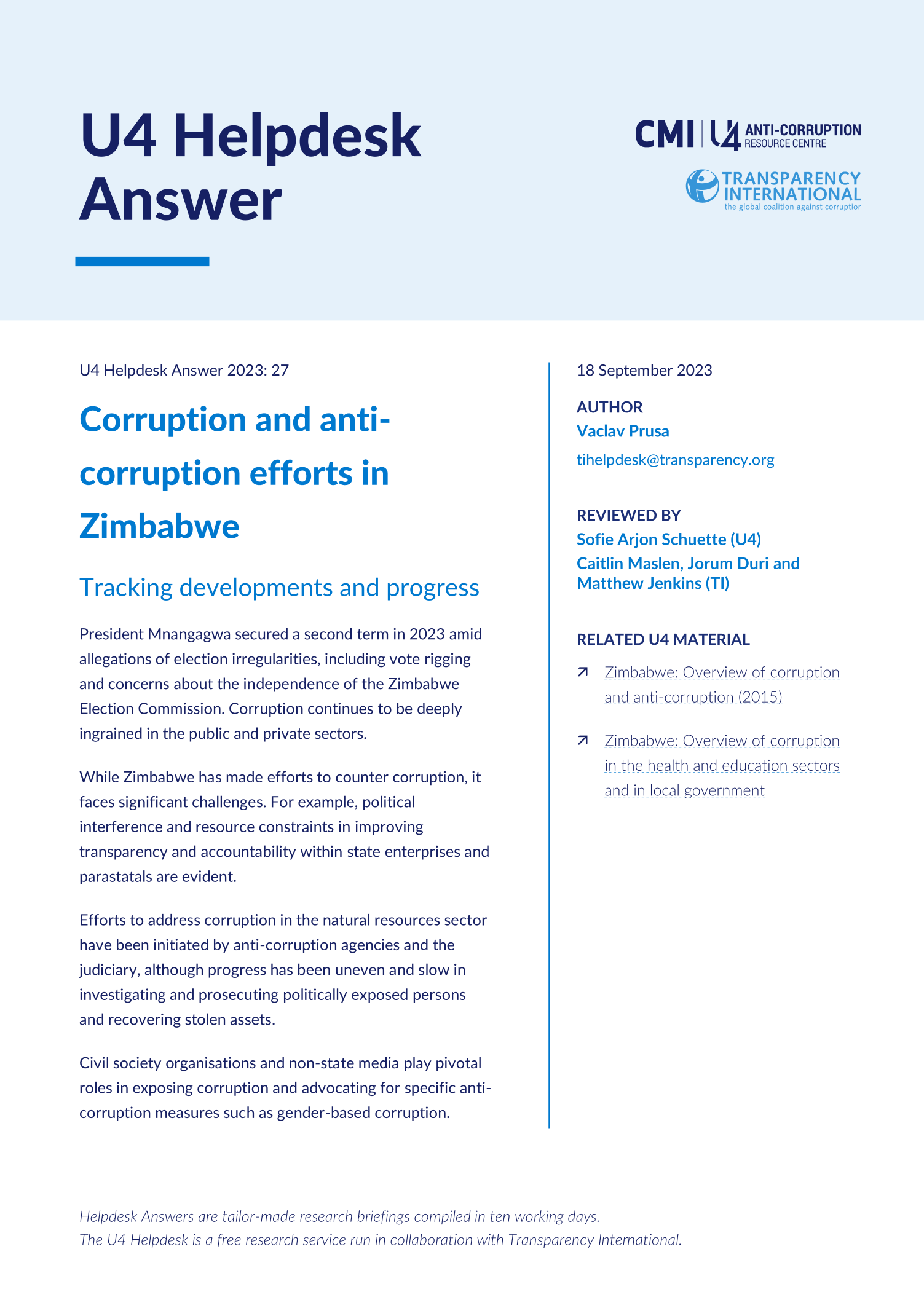Main points
- While there were high hopes for reform when Emmerson Mnangagwa took office in 2017 following Robert Mugabe's rule, the country still grapples with enduring issues such a high incidence of corruption, economic challenges and human rights abuses.
- Multiple types of corruption permeate Zimbabwe's society, affecting the public and private sectors, including vital institutions like the judiciary, law enforcement, media, electoral bodies and the mining industry.
- There is a gendered component to corruption in Zimbabwe, as there is evidence that women's rights are disproportionately affected by the need to offer bribes when accessing essential public services.
- The international dimension of corruption is significant in Zimbabwe as illicit financial flows (IFFs) have drained billions of dollars from the country, particularly in sectors related to natural resources like mining, timber and wildlife. Many of the IFF proceeds are linked to corruption.
- Civic space and independent reporting have come under growing strain in the country. This is exemplified by the introduction of the Patriot Act in 2023, which grants broad powers to the government to suppress dissent and could hinder investigative journalism into alleged corruption.


